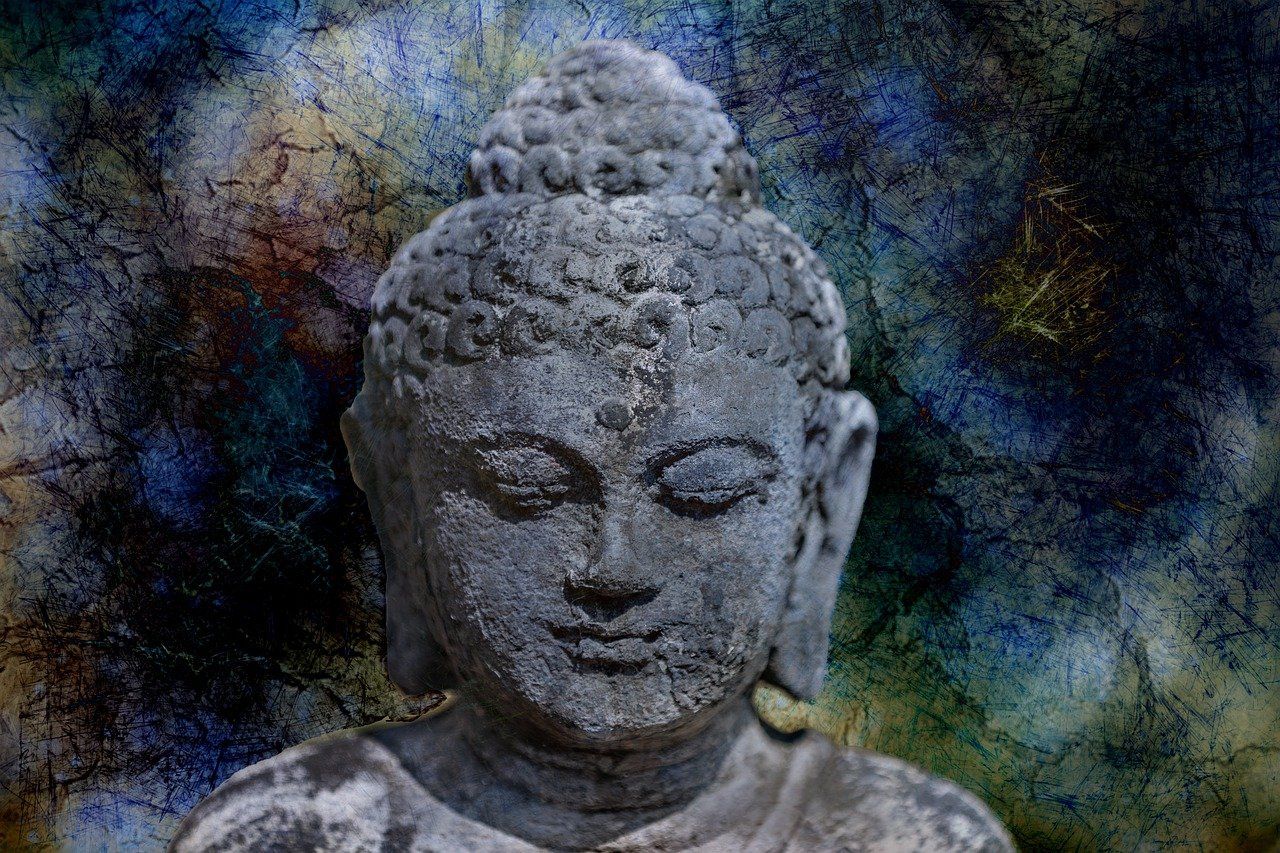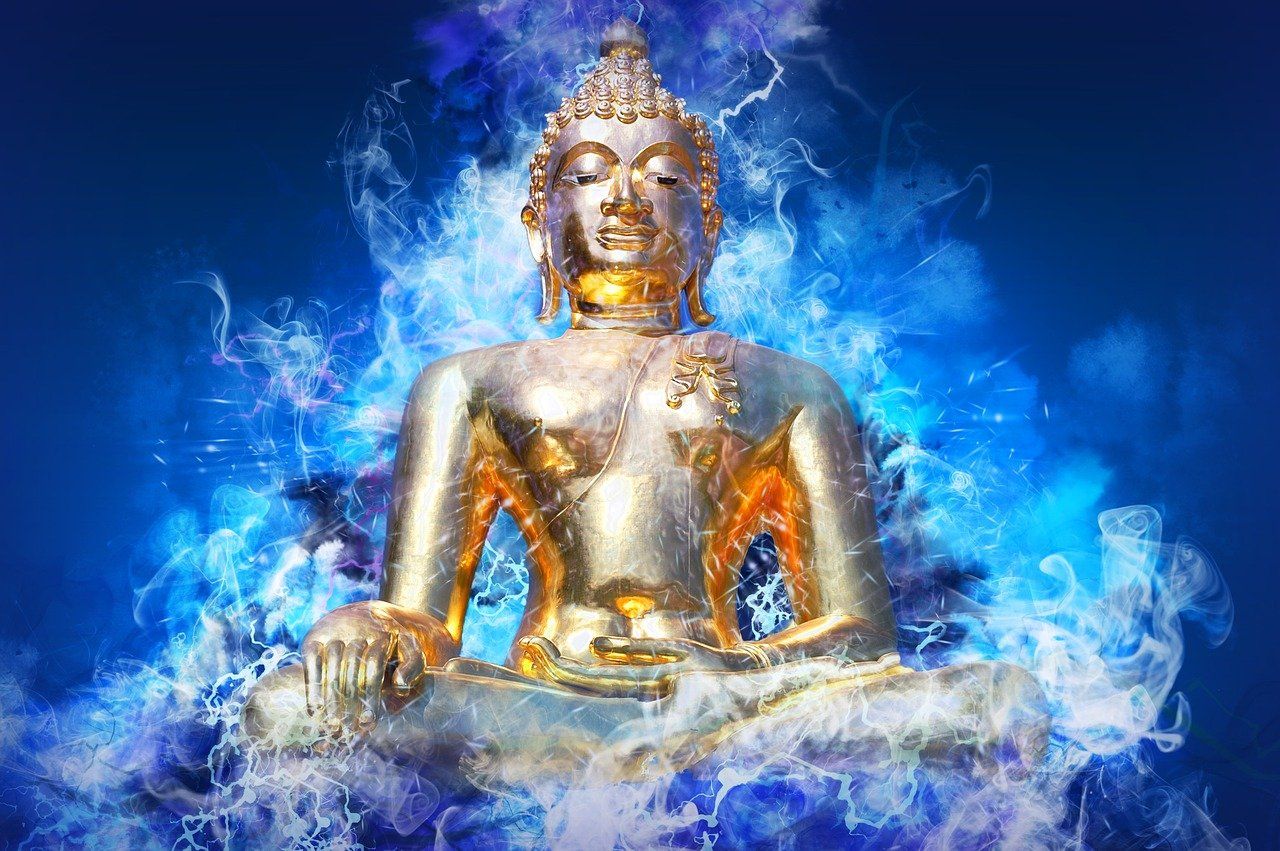The Way of Meditation Blog
Bringing Ancient Wisdom Into The Modern World
Transform Eating Into A Mindfulness Meditation
Chad Foreman • May 20, 2019
Meal Time Mindfulness Meditation
As a great Zen Master, Thich Nat Hahn says, the only thing that you should be putting in your mouth and chewing is the food. That probably sounds quite simple, but often when we sit down to eat, we’re still planning, we’re still thinking, perhaps even having a busy luncheon with other people. But to actually taste that food, every mouthful, to try to be with it in a very sensual way without being distracted is a pure mindfulness meditation. The pure experience of eating is a mindful delight and brings calm, clarity and grace to every meal.
Also saying a prayer even before you eat, I think it’s a great way to connect with your spiritual core and a sense of gratitude for the food. A sense of love for the people that prepared it, a connection and gratitude with Mother Earth.
So eating can become a whole spiritual practice in itself and it’s something that doesn’t have to be done separately, we all have to eat. So I suggest people to give that a try when they’re eating, just try to be with their food without being distracted. Say a prayer, be grateful, and cultivate a loving attitude.
Also saying a prayer even before you eat, I think it’s a great way to connect with your spiritual core and a sense of gratitude for the food. A sense of love for the people that prepared it, a connection and gratitude with Mother Earth.
So eating can become a whole spiritual practice in itself and it’s something that doesn’t have to be done separately, we all have to eat. So I suggest people to give that a try when they’re eating, just try to be with their food without being distracted. Say a prayer, be grateful, and cultivate a loving attitude.
So it’s a very practical tool to have a few deep breaths before you eat, say a simple prayer of love and gratitude, and then try to eat that food with mindfulness. Your body will be in the most receptive state to be able to take in the nutrition from the food, as much as it has to offer, and to get the most benefit out of eating.
So I think eating food with mindfulness is a really holistic practice that brings in a lot of different elements of health, of mental and emotional health, and spirituality. The grace of a Zen Master doing a tea ceremony is quit wondrous. The simplicity and the total of power of such a mundane thing as drinking tea shows that you can bring grace into all aspects of your life.
"Mindful eating is a very pleasant practice. It is a deep mindfulness meditation practice. Each morsel of food becomes an ambassador from the cosmos. When we pick up a piece of vegetable, we look at it for half a second. We look mindfully to really recognise the piece of food, the piece of carrot or string bean. We practise mindfulness by simply knowing, “This is a piece of carrot. This is a piece of string bean.” It only takes a fraction of a second of recognition.
When we are mindful, we recognise what we are picking up, when we put it into our mouth, we know we are putting it into our mouth, and when we chew it, we know that we are chewing. It’s very simple. Some of us while looking at a piece of carrot can see the whole cosmos in it, can see the sunshine in it, can see the earth in it, and the rain. It has come from the whole cosmos for our nourishment.
You may like to smile to your food before you put it in your mouth.When you chew it, you are aware that you are chewing it, and don’t put anything else into your mouth, like your projects, your worries, your fear, just put the carrot in, and when you chew, chew only the carrot, not your projects or your ideas.
Drinking a cup of tea is a pleasure we can give ourselves every day. To enjoy our tea, we have to be fully present and know clearly and deeply that we are drinking tea. When you lift your cup, you may like to breathe in the aroma. Looking deeply into your tea, you see that you are drinking fragrant plants that are the gift of Mother Earth. You see the labor of the tea pickers; you see the luscious tea fields and plantations in Sri Lanka, China, and Vietnam. You know that you are drinking a cloud; you are drinking the rain. The tea contains the whole universe.
You are capable of living in the present moment in the here and now. It is simple but you need some training to just enjoy the piece of carrot. That is a miracle.
Every minute can be a holy, sacred minute. Where do you seek the spiritual? You seek the spiritual in every ordinary thing that you do every day. Sweeping the floor, watering the vegetables, and eating food become holy and sacred if mindfulness is there. With mindfulness and concentration, everything becomes spiritual."
So I think eating food with mindfulness is a really holistic practice that brings in a lot of different elements of health, of mental and emotional health, and spirituality. The grace of a Zen Master doing a tea ceremony is quit wondrous. The simplicity and the total of power of such a mundane thing as drinking tea shows that you can bring grace into all aspects of your life.
Thich Nhat Hanh On The Zen Of Eating
When we are mindful, we recognise what we are picking up, when we put it into our mouth, we know we are putting it into our mouth, and when we chew it, we know that we are chewing. It’s very simple. Some of us while looking at a piece of carrot can see the whole cosmos in it, can see the sunshine in it, can see the earth in it, and the rain. It has come from the whole cosmos for our nourishment.
You may like to smile to your food before you put it in your mouth.When you chew it, you are aware that you are chewing it, and don’t put anything else into your mouth, like your projects, your worries, your fear, just put the carrot in, and when you chew, chew only the carrot, not your projects or your ideas.
Drinking a cup of tea is a pleasure we can give ourselves every day. To enjoy our tea, we have to be fully present and know clearly and deeply that we are drinking tea. When you lift your cup, you may like to breathe in the aroma. Looking deeply into your tea, you see that you are drinking fragrant plants that are the gift of Mother Earth. You see the labor of the tea pickers; you see the luscious tea fields and plantations in Sri Lanka, China, and Vietnam. You know that you are drinking a cloud; you are drinking the rain. The tea contains the whole universe.
You are capable of living in the present moment in the here and now. It is simple but you need some training to just enjoy the piece of carrot. That is a miracle.
Every minute can be a holy, sacred minute. Where do you seek the spiritual? You seek the spiritual in every ordinary thing that you do every day. Sweeping the floor, watering the vegetables, and eating food become holy and sacred if mindfulness is there. With mindfulness and concentration, everything becomes spiritual."
Get A FREE
Guided Meditation Series
with Chad Foreman

In today’s fast-paced world, the mind often races, driven by the demands of work, family, and personal ambitions. Meditation is commonly seen as a practice to calm the mind, foster inner peace, and connect with deeper aspects of existence. Yet, one crucial element often overlooked is the state of the body, particularly the nervous system. Relaxing the nervous system isn’t just a preparatory step; it is foundational for unlocking the deeper states of awareness and tranquility that meditation promises. Drawing insights from my journey and teachings, we will explore why this is so vital and how it transforms the meditative experience.










